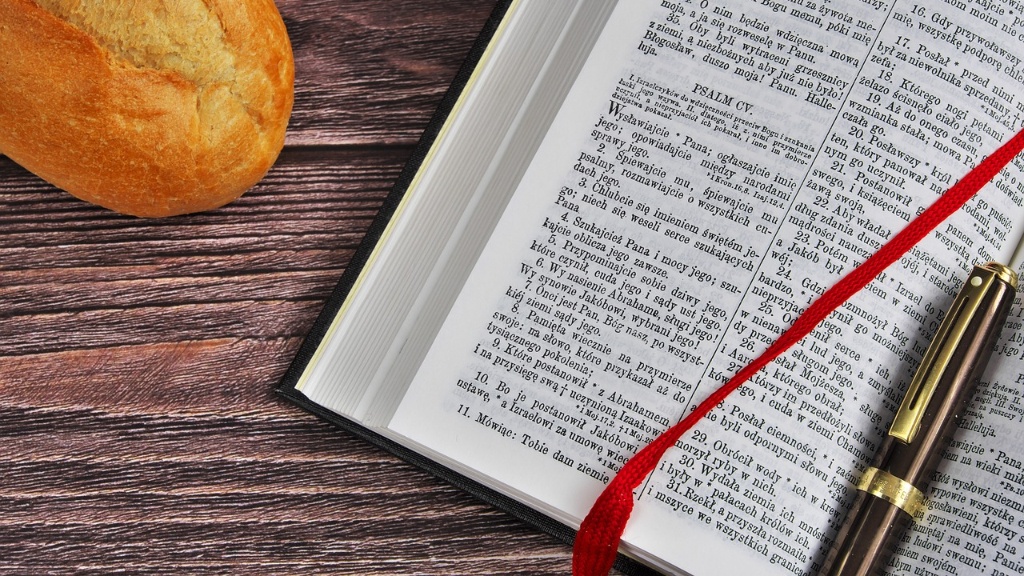The Bible is the holy book of Christianity, said to be written by humans but inspired by God. It contains moral teachings and records the history of the world and the humankind. It is believed that its contents have been translated and edited multiple times over centuries, leading some people to question its validity and accuracy. Is the Bible really corrupted or is it as sacred and infallible as its followers claim it to be?
Proponents of the argument that the Bible is corrupted cite the many translations, revisions and different versions of the holy book. They point out that, over the years, many texts of the Bible have been lost, forgotten or kept secret. Moreover, there have been no originals for many versions of the Bible, making it impossible to fact check its contents. Finally, they point out that many ancient manuscripts are missing, which could contain vital information and teachings.
Others refute this claim, citing the sheer number of manuscripts which have survived the test of time and come down to us in the form of the Bible. In fact, the sheer number of manuscripts combined with their differences provides evidence of the accuracy the Bible. This is because the facts and narratives contained in the Bible remain constant in spite of their different origins.
Moreover, the Bible has been studied and verified by many experts across multiple fields and religions. For many centuries, its contents have been subject to intense scrutiny from religious scholars, theologians and scientists, who have all come to similar conclusions about its reliability.
Furthermore, the Bible has had an immense impact on history and continues to be hugely influential in society today. It has inspired, shaped and unshaken many cultures and beliefs, leading many to believe that it is indeed an infallible and sacred book. In addition, many believers of the Bible point out that its teachings have provided moral guidance, hope and comfort for people of faith.
Of course, there is no single answer to this question as people have encountered different interpretations, translations and revisions of the Bible. Nevertheless, it is undeniable that the Bible has endured centuries of testing, criticism and re-interpretation and yet its truths remain constant.
Impact on Other Religions
The Bible is also believed to have heavily influenced other major religions around the world. For example, certain passages of the Bible appear in various Muslim texts. This has led many Christian thinkers to believe that the Bible must, indeed, be an infallible and accurate book. The Bible has also inspired Jewish texts and is a source of knowledge in other religions.
This is not to say that the Bible is universally accepted as a reliable source of truth. Many people are skeptic of the Bible’s accuracy and fallibility and believe that its contents have been distorted over time and its teachings misinterpreted.
However, given its immense influence on people’s lives and its wide acceptance across multiple faiths, it is hard to ignore the possibility of the Bible’s infallibility. The Bible has survived the test of time and many of its narratives have been re-told in different ancient manuscripts, with remarkably similar messages.
Moreover, the Bible’s stories and messages have provided comfort and guidance to people of any faith for many centuries and continue to do so today. This is proof of its power and reliability even if certain passages may have been slightly distorted or lost.
Interpretations
As mentioned, the question of whether or not the Bible is corrupted largely lies in its interpretation. People have different views about its accuracy and authenticity, often depending on their religious beliefs and background.
Whether one believes that the Bible is completely accurate or only partially true, it is undeniable that its teachings have shaped and influenced a great many cultures and beliefs over the centuries. Moreover, it is a source of faith, comfort and moral guidance for millions of people across the world.
Of course, how one interprets the Bible ultimately has to come down to one’s own beliefs and views. However, given its survival across centuries and its immense influence, it is hard to completely deny its validity as a source of truth.
Accuracy and Preservation
Another important factor to consider is the accuracy and preservation of the Bible. Given its many translations, revisions and different versions, there have been numerous attempts over time to accurately preserve the Bible’s original meaning and intentions.
For example, in the 19th century, Bible societies were formed to fact-check and compare different translations and manuscripts of the Bible in order to understand the Bible’s original meanings. Furthermore, multiple religious institutions have striven to protect and accurately document the Bible’s content.
Thanks to these initiatives, the Bible is now available in multiple languages and versions, ensuring that its original teachings remain intact even across centuries and different versions.
Ultimately, it is up to each individual to form his or her own opinion about the Bible. However, given its long lasting and enduring impact on human civilization over centuries, it is safe to say that the Bible is indeed an infallible, sacred and reliable book.
Translations
When discussing the accuracy and infallibility of the Bible a crucial aspect is the accuracy and validity of the translations. Many translations of the Bible were made by people with limited knowledge and understanding of the ancient language which could lead to a distortion of the original meaning.
For example, many translators of the Bible rely on shortcuts when translating the texts, resulting in the loss and forgetting of important passages in the Bible. Moreover, these translations were often inaccurate due to a lack of knowledge of the context, cultural background and language of ancient manuscripts.
This has led many Bible scholars and religious institutions to put in effort to ensure that the original messages and teachings of the Bible remain intact in different translations. For instance, careful attention is given to the original language and content of scriptures before translating them into other languages. This helps to preserve the original meaning and accuracy of the Bible.
In addition, modern technology such as computers have made it much easier for religious scholars and historians to identify any discrepancies in translations and ensure that the original meaning and truth of the Bible is not lost.
Science and Technology
In recent years, technology and modern science have been used to study scripts and manuscripts in an attempt to understand their accuracy and validity. For example, experts use scientific methods such as carbon dating and radiocarbon analysis to verify the age and authentication of ancient texts.
Moreover, scientists have also employed computers and sophisticated algorithms to compare manuscripts from various sources and identify any discrepancies or inaccuracies in the texts. Furthermore, experts have used text recognition software to accurately transcribe ancient manuscripts, ensure accuracy in translations, and reconstruct missing scripts.
These tools have not only been used to verify the accuracy of the Bible but also to provide a glimpse into the past and understand more about the ancient world. For example, experts have used computer analysis to identify patterns in the Hebrew Bible and gain insights into the purpose and culture of the authors of these ancient texts.
In addition, these tools also help to reconstruct manuscripts and texts which have been lost or forgotten over time. This, combined with the wealth of manuscripts and evidence that exists, helps to demonstrate the authenticity and accuracy of the Bible.
Closing Thoughts
The question of whether or not the Bible is corrupted is not an easy one to answer. People have different views and interpretations of the Bible and its contents, depending on their background and beliefs. Nevertheless, its immense impact on human life over centuries and its acceptance across various faiths makes it difficult to deny the possibility that the Bible is indeed an infallible and sacred book.
Moreover, modern science and technology have helped to verify its authenticity and accuracy. Scientists have used sophisticated tools to compare manuscripts, verify translations and reconstruct missing texts, restoring faith in the accuracy of the Bible.
In conclusion, the Bible has been subject to scrutiny and criticism over the centuries, yet its truths remain intact. The sheer number of manuscripts combined with modern technology provide evidence of its accuracy and reliability. Ultimately, the Bible is an enduring source of comfort and moral guidance for people of any faith and background, leading believers to believe in its infallibility.





